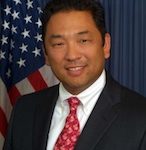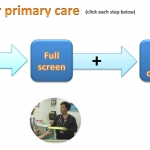IRETA staff member Piper Lincoln demystifies the NIAAA’s “low-risk drinking guidelines.
SBIRT
Drug Overdose in our Backyard is Breeding Home-Grown Solutions
There were more registrants than seats at the second annual Allegheny County Overdose Prevention Coalition (ACOPC) conference held July 24 at the University of Pittsburgh. Here is New Allegheny County data, a Massachusetts model, and a local public health response.
SBIRT in Hospitals: It Can Be Done
Dr. Lauren Broyles has a well-defined vision for how nurses can contribute meaningfully to the conversation of substance use in the hospital setting. IRETA staff member Dr. Dawn Lindsay shares Dr. Broyles’ manifesto and model project
IRETA’s Work Included in 2013 Drug Control Strategy
Presentation at Hopkins featured an interesting blend of science and law enforcement
SBIRT Fits in Today’s (and Tomorrow’s) Provider Business Model
There has been a groundswell of SBIRT activities in northeastern Ohio, a movement. An Ohio treatment center provides SBIRT at an FQHC, a region that works cooperatively, and everybody wins.
White House, State and Local Officials Attend Nearby Drug Summit
Determined to change a frightening trend, parents and students gathered last week for a drug summit on federal, state, and local solutions to the overdose crisis.
Just in Time for Brain Awareness Week
The Interagency Coordinating Committee on the Prevention of Underage Drinking presented a webinar about brain research and underage screening. Stay up to speed on SBIRT, drugs, and the teenage brain.
Utilizing SBIRT in a student-run free clinic
Med student and Scaife alumna Miranda Greiner brings motivational interviewing, SBIRT to her work in Kansas.
Spotlight on SBIRT Oregon
Google “SBIRT projects” and you’ll find lots of federally-funded efforts to learn about service delivery models for SBIRT in various settings. Today, we will talk about how an Oregon team creates a curriculum tackling SBIRT implementation in primary care.
Alcohol and violence are so often intertwined
Addiction treatment veteran Jim Aiello discusses our reluctance to examine the alcohol-violence connection and proposes a solution.















